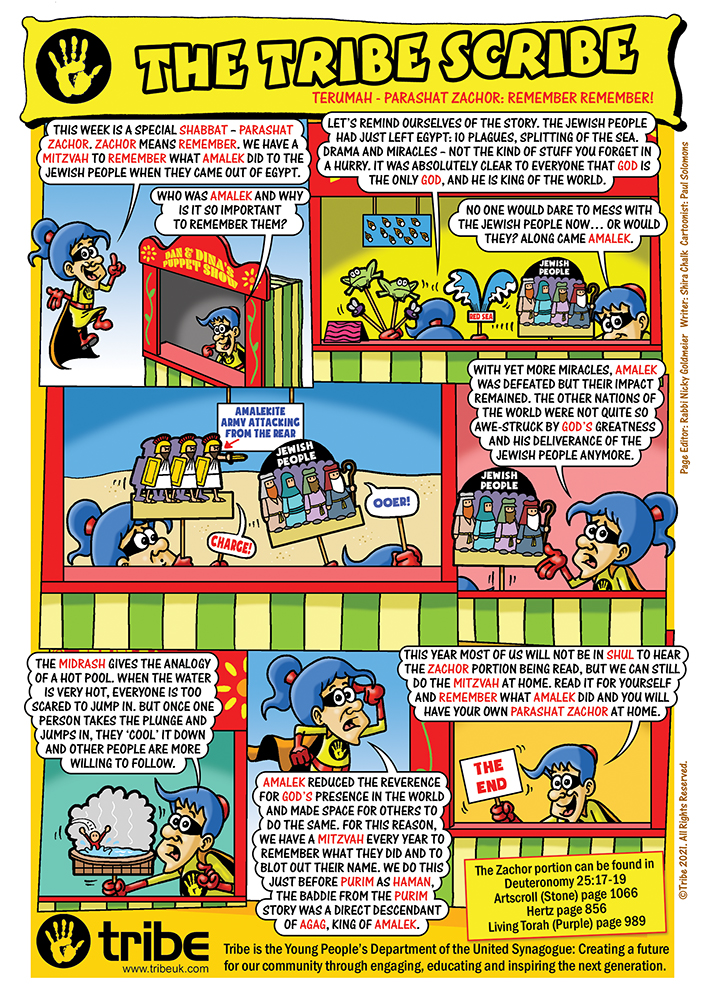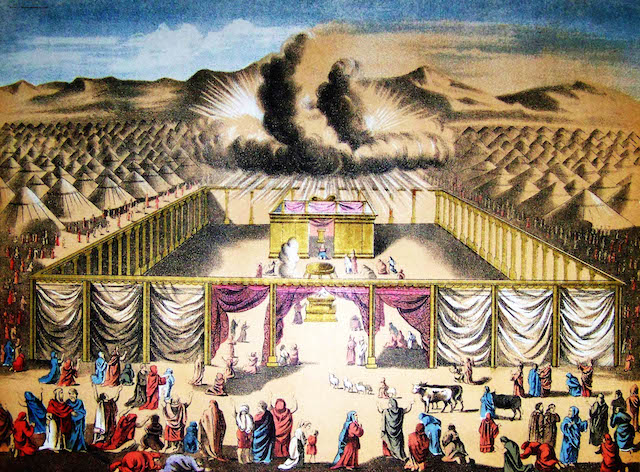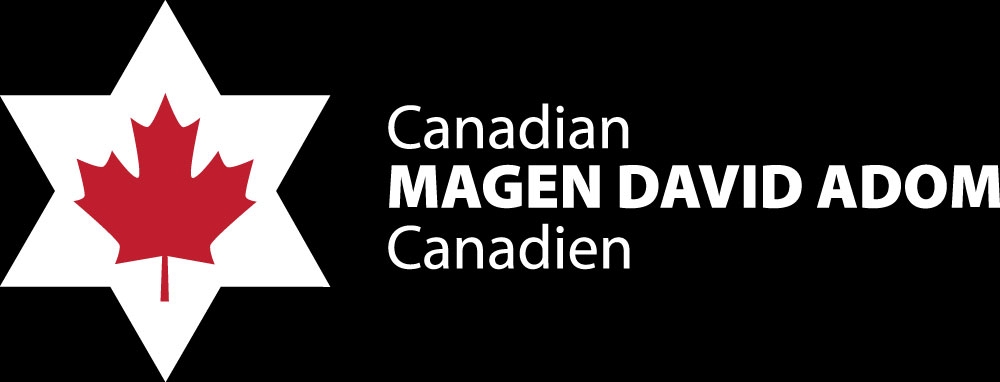Bonjour / Hello [nickname_else_first_name],
Table of contents
1) Perashat Hashavoua - Rabbi Eli Mansour
2) Halakhat Hashavoua (Halakhot related to day to day life) - Hazzan David Azerad
The One Who Is Called Up and the Torah Blessings -Peninei Halacha
3) Holy Jokes!
4) FOR KIDS!
Second Purim (Hebrew: פורים שני, romanized: Purim Sheni), also called Purim Katan (Hebrew: פורים קטן, lit. 'Minor Purim'),[1][3] is a celebratory day uniquely observed by a Jewish community or individual family to commemorate the anniversary of its deliverance from destruction, catastrophe, or an antisemitic ruler or threat. Similar to the observance of the Jewish holiday of Purim, Second Purims were typically commemorated with the reading of The Megillah about the events that led to the salvation, specially-composed prayers, a festive meal, and the giving of charity. In some cases, a fast day was held the day before. Second Purims were established by hundreds of communities in the Jewish diaspora and in the Land of Israel under foreign rule.[1] Most Second Purims are no longer observed.[1]
A Second Purim did not replace the regular Purim observed on 14 Adar (or 15 Adar, in Jerusalem and a few other cities), which all Jews are required by rabbinic law to observe.
-Wikipedia

This Week's Parasha Insight with Rabbi Eli Mansour
Parashat Teruma- Perpetuating the Influence of Sinai
Parashat Teruma tells of G-d’s instructions to Beneh Yisrael regarding the construction of the Mishkan, the sanctuary that served as the temporary Bet Ha’mikdash until Beneh Yisrael entered the Land of Israel and were able to build the permanent Bet Ha’mikdash in Jerusalem.
The Midrash makes a seemingly peculiar remark to the beginning of this Parasha, commenting that this Parasha is connected to G-d’s proclamation through the prophet Malachi (1:2-3), "Va’ohab Et Yaakob Ve’et Esav Saneti" – "I loved Yaakob, and I despised Esav." Somehow, the command to build a Mishkan is associated with this pronouncement, where G-d affirms that He loves Am Yisrael and dislikes the wicked nation of Esav. How?
The Kerem Shelomo (Rav Shlomo Halberstam of Bobov, 1907-2000) offers an explanation based on a teaching of the Or Ha’haim (Rav Haim Ben-Attar, 1696-1743) regarding G-d’s special love for Beneh Yisrael. The Talmud famously relates that before G-d offered the Torah to Beneh Yisrael, He first offered it to the other nations, each of whom rejected it upon hearing what it entails. The Or Ha’haim commented that G-d, in His infinite love for Beneh Yisrael, always intended for us to receive the precious Torah, and not the other nations. And therefore, before offering Beneh Yisrael the Torah, He brought them to Mount Sinai, a place with inherent Kedusha (sanctity) which would, undoubtedly, influence them to accept the Torah. When offering the Torah to the other nations, G-d went to them in their lands, which were places of impurity. This influence all but guaranteed that these nations would reject the Torah. Hashem then brought Beneh Yisrael to Mount Sinai, where they came under the influence of the special sanctity of this location. This Kedusha impacted them, and inspired them to proclaim, "Na’aseh Ve’nishma" – "We will do and we will hear" – wholeheartedly and lovingly embracing Hashem’s Torah.
On this basis, the Kerem Shlomo suggests an explanation of the Midrash’s perplexing remark. Due to Hashem’s great love for Beneh Yisrael, He brought them to Mount Sinai so they would accept the Torah – and out of this same love, He commanded them to build a Mishkan. He wanted them to perpetuate the special influence of Mount Sinai, to have in their midst a place of Kedusha similar to the special Kedusha of Mount Sinai, which would influence them to make the right decisions and live the right way. This is the connection between the prophet’s proclamation – "I have loved Yaakob" – and the command to build a Mishkan. It was because of G-d’s special love for Beneh Yisrael that He issued this command – because He wanted them to always be under the influence of Kedusha.
Living in a society with a foreign culture and foreign values, we do not even realize how much we are influenced by those values and by society’s lifestyle. The society around us has values and beliefs that are completely at odds with ours, and encourages a lifestyle that is, in many ways, diametrically opposed to the way the Torah wants us to live. Whether we recognize it or not, we are influenced by this spiritually hostile culture. We might think we are protected, but we’re not.
Hashem, in His infinite mercy, gave us the Mishkan so we can come under the positive influence of Kedusha, the influence of Sinai. Today, of course, we don’t actually have a Mishkan, but instead, we have our synagogues, yeshivot, and Torah classes. It is imperative for all of us to ensure we come under this influence to counter the influence of general society. We need to involve ourselves as much as possible in Kedusha so we can live under the sacred influence of Sinai, and thus live the way we are supposed to live even while living in a society whose values and beliefs encourage us not to.

When Adar Arrives We Increase Our Joy -Peninei halacha
The Sages said, “When Av arrives we curtail [our] joy, and when Adar arrives we increase [our] joy” (Ta’anit 29a). In saying this, the Sages teach us that nothing happens by chance and that every season has its own character and nature. If both Temples were destroyed on the ninth of Av, it is a sign that the beginning of Av is naturally predisposed to calamity. And if the miracle of Purim occurred in the middle of Adar, it is a sign that this month has the capacity to transform bad into good. We feel ordinary joy over the good that exists in the world, but our joy is not complete, because there is still evil and pain in the world.
However, when even the bad turns into good, our joy increases and becomes complete. This is what happened on Purim: God turned the bad into good and saved His people, Israel. This teaches us that everything that happens in the world – even the bad – will eventually become good. The greater our faith and our commitment to Torah, the closer we bring the ultimate redemption, when all evil will turn into good, and when joy will abound in the world. Since the month of Adar has the unique character of transforming bad into good, “when Adar arrives we increase [our] joy.”
The Sages further recommend (ibid. 29b) that a Jew who has a legal dispute or business deal to settle with a non-Jew should avoid him during the month of Av, because that month portends misfortune. Instead, he should try to make himself available for litigation or a business deal during Adar, when the Jewish people experience good fortune.
Bevirkat Shabbat Shalom Umevorach
David Azerad
3) HOLY JoKeS!!
Selection of funny snippets, loosely related to this weeks parashah or current events, to brighten your day
In the past two weeks’ Torah portions, we read about the Jews accepting the Torah. In this week’s Torah portion, the Jews have left Mt. Sinai and begin their journey through the desert. Let’s imagine, for a moment, if we would be traveling through the desert with the Jews. We would certainly be traveling by car. After all, if you can take a car, why go by horse or by foot?
What type of car do you think we would take? Someone proposed the following answer.
It would have to be an SUV, 4-wheel drive. Nobody wants to drive in the desert with a SEDAN; it would just get stuck in the sand. With that in mind, here are some possibilities:
1. Our Sages tell us that the Jewish people were the first slaves to ever leave Egypt in history. That would call for a Chevy TRAILBLAZER.
2. We began traveling in the desert Passover time. That would call for a NISSAN PATHFINDER.
3. Along our travels, we’ll be discovering many new places. That would call for a Ford EXPLORER.
However, I think that this answer is a terrible mistake. There would be absolutely no problem driving a small car in the desert. Why not? Because our Sages tell us that the Clouds of Glory accompanied the Jewish people for all the years that they were in the desert. The Clouds of Glory were above them and surrounded them on all four sides. More than that, the Clouds of Glory went underneath them, smoothing the ground for them. Can you imagine how the Jews felt? LIKE THEY WERE ON TOP OF THE CLOUDS!



4) FOR KIDS
Click on the image to open the youtube video


















